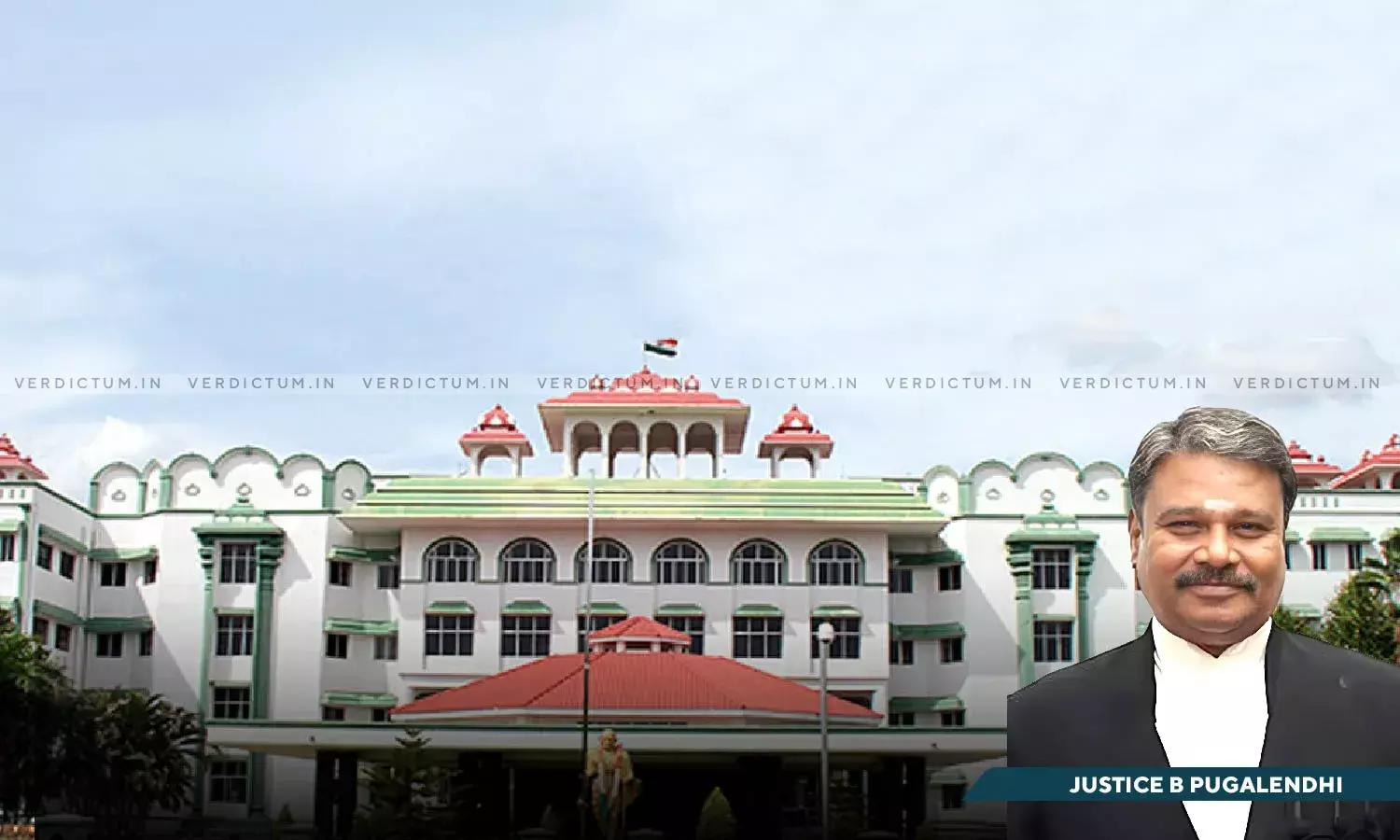Bar Associations Cannot Enforce Collective Boycotts; Such Conduct Is Contemptuous Of The Rule Of Law: Madras High Court
The High Court held that the right to legal representation is a constitutional guarantee flowing from Articles 21 and 22 of the Constitution, emphasising that the Bar as an institution of constitutional importance cannot prevent an accused from engaging counsel of choice.

Justice B. Pugalendhi, Madras High Court, Madurai Bench
The Madras High Court has ruled that Bar Associations cannot, formally or informally, prevent advocates from appearing for any accused. The Court declared that denying legal representation, whether through boycott resolutions or social pressure, is illegal, unethical, and unconstitutional.
The Court was hearing multiple connected petitions involving allegations that members of certain Bar Associations in Kanyakumari District were refusing to represent accused persons due to local pressure, resulting in denial of fair trial rights and alleged misuse of the collective strength of the Bar.
A Single Bench of Justice B. Pugalendhi, upon hearing the matter, observed that “the Bar is not a trade union; it is an institution of constitutional significance. Any attempt to convert it into a pressure group that dictates who may or may not be represented before a Court of law is nothing short of contempt for the rule of law.”
Advocate T. Selvan appeared on behalf of the petitioner, while Advocate Niranjan S. Kumar represented the respondents.
Background
The petitions arose from multiple criminal cases pending in Kanyakumari District, where accused persons sought transfer of trials and criminal proceedings on the ground that advocates were unwilling to appear against influential members of the Bar.
The petitioners alleged that some lawyers’ bodies had informally discouraged counsel from representing particular accused, making it impossible to secure legal representation, forcing courts to appoint legal-aid counsel.
One petition involved allegations of about 50 lawyers trespassing into a woman’s house and ransacking her property. Another petition alleged that due to the complainant being an office-bearer of a Bar Association, advocates were refusing briefs.
The accused in multiple matters sought transfer of trials and police protection, claiming collusion between complainants, lawyers and local police.
The Court called for a status report from the Superintendent of Police. The report, however, was found to be vague and evasive regarding why earlier complaints were ignored. The Court also noted that since 2010, more than thirty similar complaints involving alleged boycotts by Bar Associations from the same region had been brought to its notice.
Court’s Observation
The Madras High Court, at the outset, held that the right to legal representation is a constitutional guarantee, inseparable from Articles 21, 22 and 39A of the Constitution, while reiterating that a fair trial is impossible if an accused is denied counsel of choice.
The Bench emphasised that the Advocates Act, 1961 and the Bar Council of India Rules impose a duty on advocates to accept briefs consistent with their standing and restrain refusal except for valid reasons. The Court quoted Rule 11 of Chapter II, Part VI of the BCI Rules, requiring advocates to accept briefs and Rule 1 mandating dignity and independence in conduct before the Court.
The Court relied on A.S. Mohammed Rafi v. State of Tamil Nadu (2011), where the Supreme Court condemned Bar boycotts as “wholly illegal, against all traditions of the bar, and against professional ethics.” It also referred to Rupashree H.R. v. State of Karnataka, where the Supreme Court quashed a resolution of a Bar not to defend a particular accused, reiterating that the right to defence and right to appear for a client are fundamental rights.
The Court took note of repeated allegations over several years from the same region, stating that the matter cannot be ignored as a coincidence. The police report regarding failure to act on complaints was perfunctory and raised suspicion of collusion.
The Bench stressed that Bar Associations cannot become centres of intimidation or professional exclusion, emphasising that “the law does not recognise collective boycotts, informal understandings, or social embargoes on appearance for any accused person.”
The Bench further stated that “Bar Associations are representative bodies meant to uphold professional honour and independence. If they, instead, become instruments of intimidation or exclusion, they betray their own charter and erode public confidence in the administration of justice.”
The Court held that such actions violate constitutional guarantees of fair trial and legal representation, and, if established, would constitute gross professional misconduct.
Conclusion
The petitions were disposed of with directions that trial courts must ensure that the accused receive effective representation of their choice. The Principal District Judge was directed to monitor the ongoing trials. Allegations of trespass and abuse of power by advocates and police were directed to be investigated by the CB-CID.
The Court also allowed petitioners to initiate disciplinary proceedings before the Bar Council of Tamil Nadu and Puducherry. It directed the Bar Council to act strictly against any advocate found to be participating in boycotts or preventing legal representation.
Cause Title: Manikandan Nair v. State of Tamil Nadu & Ors. (Neutral Citation: 2025:MHC:2517)
Appearances
Petitioners: Advocates T. Selvan, R. Anand, S. Balaji Nivas
Respondents: Represented by the Government Advocate P. Kottaichamy, Senior Advocate T. Lajapathy Roy, Advocates Niranjan S. Kumar and S. Ananth


